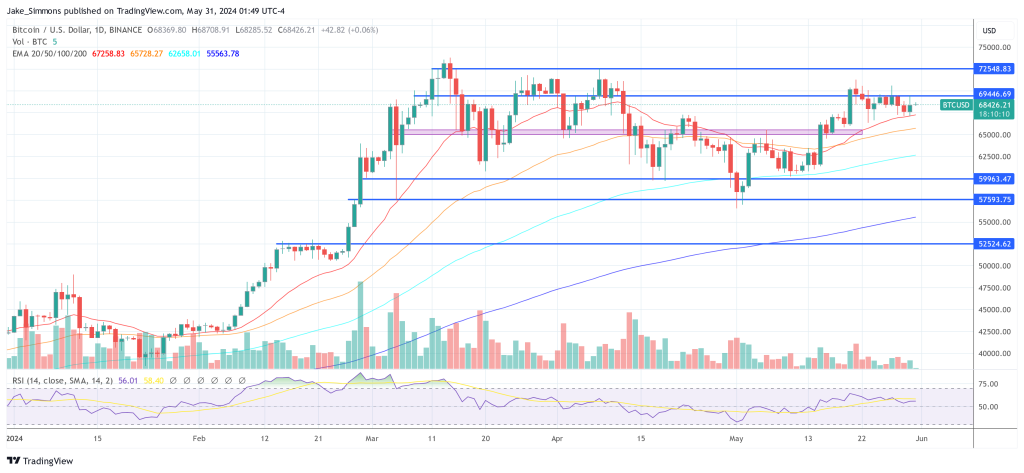Scott Johnsson, financial attorney at Van Buren Capital, provided in-depth analysis criticism via His observations suggest that despite some seemingly positive gestures like the one-time approval of the Ethereum ETF, the administration’s fundamental stance remains deeply antagonistic toward Bitcoin and crypto.
Persistent Regulatory Actions Against Crypto
Johnsson begins by discussing the refusal of the Office of the Comptroller of the Currency (OCC) to adopt the “equitable access” banking rule. This rule, advocated by former Comptroller Brian Brooks, was intended to ensure that federally chartered banks could not refuse financial services for political or ideological reasons. The administration’s rejection of this rule illustrates a broader reluctance to dismantle discriminatory regulatory barriers against crypto companies.
This position is further attested by numerous coercive measures against major exchanges including Coinbase, Binance, and Kraken. All face enforcement based on what Johnsson calls an “incredibly broad definition of security.” These actions took place without clear guidance from regulators, creating a climate of uncertainty and fear among crypto companies regarding potential lawsuits and widespread securities law enforcement.
The Securities and Exchange Commission (SEC) has been particularly active, issuing Wells Notices to several major industry players. This includes Consensys, Uniswap Labs and Paxos, the latter being forced to end the issuance of the BUSD stablecoin. Each of these actions illustrates the SEC’s desire to exploit securities law in an unusually broad manner against crypto entities, potentially stifling innovation.
Additionally, Johnsson highlights the SEC’s expansion of the “dealer rule” to encompass DeFi platforms, requiring them to register as exchanges and comply with ATS regulations. This decision calls into question the decentralized nature of these platforms and casts doubt on their ability to operate within the current regulatory framework without substantial modifications.
Legislative maneuvering and IRS overreach
A crucial move by Treasury was to insert, in the middle of the night, definitions of “broker” into crucial legislation, with subsequent IRS rules expanding those definitions to potentially encompass individuals and entities far beyond traditional broker-dealers . This could have serious implications for DeFi platforms, essentially limiting their operations in the United States.
Johnsson also sheds light on the Department of Justice (DOJ) deviating from established FinCEN guidelines in its actions against Tornado Cash And Samurai wallet, charging money transfer fees that threaten serious legal consequences. These decisions mark a significant shift in how privacy-focused tools are treated under U.S. law, signaling a potentially hostile environment for privacy innovations in blockchain.
Banking and institutional barriers
The analysis continues with the Federal Deposit Insurance Corporation (FDIC) sending verbal messages to banks to keep crypto deposit thresholds at 15% and requiring banks to seek individual approval for new crypto business engagements. Likewise, the Federal Reserve refusal of Custodia’s request to become a member and its refusal to grant a master account illustrates a concerted effort to limit the banking industry’s engagement with crypto entities.
Additionally, the Federal Reserve, FDIC, and OCC jointly issued statements highlighting the perceived risks banks face when engaging in crypto, discouraging them from maintaining direct exposure to crypto assets.
Political and legislative resistance
The political landscape is no less challenging, with 103 Democrats and two Republicans endorsing Senator Warren’s letter that exaggerates crypto’s role in terrorist financing, without any subsequent retraction. Additionally, Senator Warren’s advocacy for the Digital Asset Anti-Money Laundering Act (DAAMLA) proposes severe restrictions that could amount to a de facto ban on crypto.
Johnsson critically notes persistent veto threats against legislative efforts such as SAB 121, which the Government Accountability Office (GAO) flagged for improper enactment, and highlights the bill targeting crypto miners with heavy tax obligations. He also mentions the blocking of legislation on stablecoins and the ban on Central Bank Digital Currencies (CBDCs) as part of the administration’s broader strategy to curb the growth of the crypto sector.
Johnsson concludes that the Biden administration’s actions collectively represent a formidable array of regulatory, legislative, and coercive obstacles that significantly hinder the potential of Bitcoin and crypto in the United States.
“Rolling back on almost all of these issues would bring us JUST back to neutral and close to where the Trump administration left us. At this point, apologists can explain that the Trump/Biden admins are both “pro-crypto” or whatever adjective they use to equivocate. Biden still threatens developers with prison sentences and is still ready to destroy any bank or business that gets in the way,” concludes Johnsson.
At press time, Bitcoin was trading at $68,246.

Featured image of Shutterstock chart from TradingView.com


